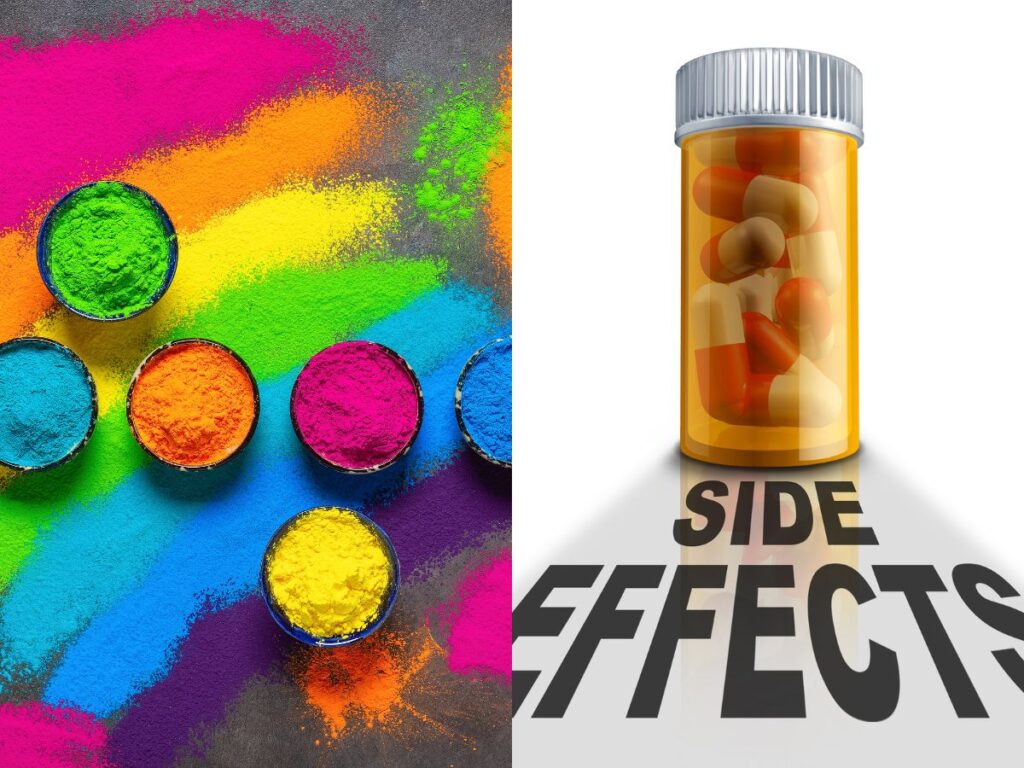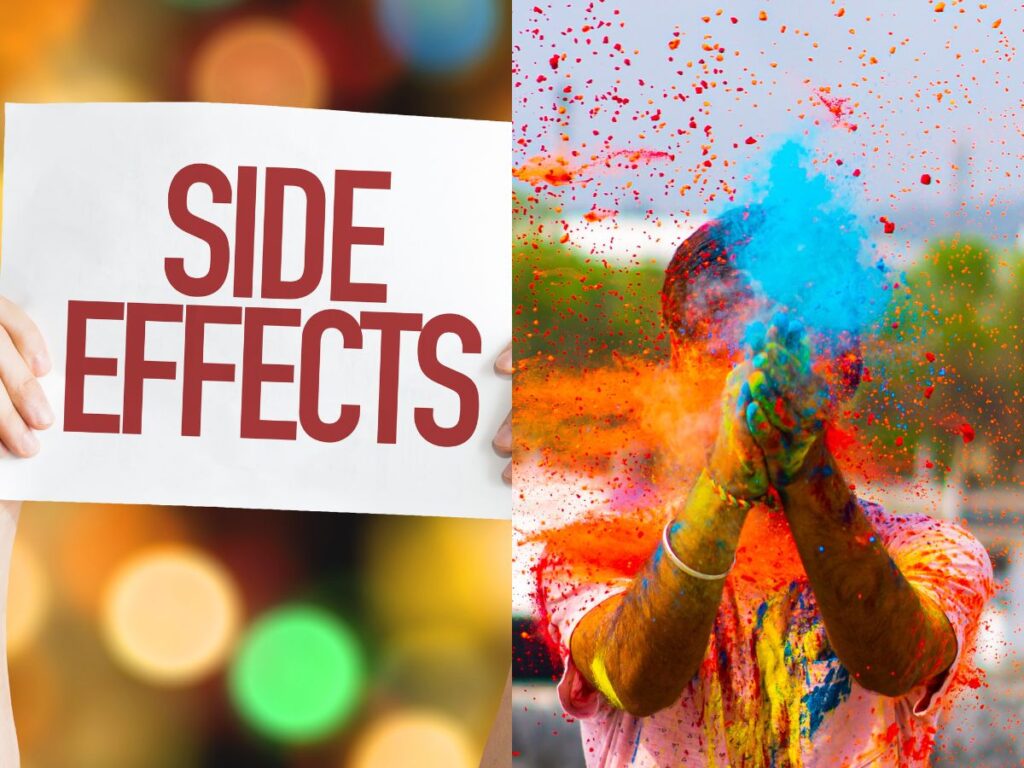Holi is a vibrant and colorful festival celebrated in India and other parts of the world, usually in March. It marks the arrival of spring and the victory of good over evil. People celebrate Holi by smearing colors on each other, playing with water, and indulging in delicious food and drinks. The Holi will be celebrated on the 8th of March 2023. While Holi is a fun-filled and joyous occasion, it is important to be aware of its potential side effects.

Here are some common side effects of playing Holi that you should be mindful of:
Skin irritation and rashes: The colors used during Holi often contain chemicals that can cause skin irritation and rashes. Some people may also experience allergic reactions to the chemicals used in the colors. It is important to use natural and organic colors to avoid these side effects.
Eye infections and allergies: Getting color in your eyes can cause irritation and even lead to infections. Some colors may contain toxic chemicals that can cause severe eye allergies and even blindness in extreme cases. It is essential to wear protective eyewear while playing Holi to avoid such risks.
Breathing difficulties: The colors used during Holi can also cause breathing difficulties, particularly for people with respiratory issues like asthma. The fine particles in the colors can enter the lungs and cause irritation, leading to coughing, wheezing, and shortness of breath. It is advisable to wear a mask while playing Holi to avoid such risks.
Dehydration: Playing Holi in the sun can be exhausting and dehydrating. It is essential to drink enough fluids and stay hydrated to avoid the risk of dehydration. Additionally, excessive consumption of alcohol during Holi can exacerbate dehydration and lead to other health issues
Waterborne Diseases: Holi is also associated with the use of water, which can lead to the spread of waterborne diseases. Playing with contaminated water can lead to infections, such as cholera, typhoid, and hepatitis A. It is important to use clean water and to avoid playing in areas with stagnant or polluted water.


